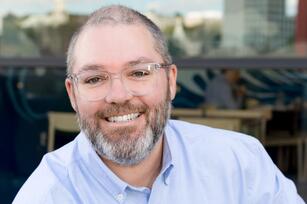
Breadcrumb
- Essential Partners
- Our Impact
- News and Notes
- The Basement Talks Inspires Empathy, Complexity in Classroom Discussions
The Basement Talks Inspires Empathy, Complexity in Classroom Discussions
Natasha Seegert is Associate Professor and Director of Conflict Resolution at the University of Utah. Over the past three years, she has participated in EP workshops to bring our Reflective Structured Dialogue and Dialogic Classroom models to her own teaching. She recently shared this story about the impact of dialogue, as well as the new independent documentary about our work, The Basement Talks, to her students.
Over the past two years in three classes at the University of Utah, I have used the documentary, The Basement Talks (formerly The Abortion Talks), and some variation of the associated Essential Partners dialogue questions to facilitate classroom dialogue about the topic of abortion.
Two of these classes consisted of twelve K-12 school teachers who took the class, “Dialoguing through Conflict,” as part of their continuing education credentials. The goal was to strengthen the educators’ abilities to facilitate discussions about challenging and divisive topics in the classroom—and elsewhere in their professional lives.
The third class, “Foundations of Dialogue and Conflict” (which has now been renamed “Tackling Taboo Topics: Dialoguing through Conflict”) was a group of 30 undergraduates ranging from first-year students to seniors. These students hoped to leave with new skills and frameworks for transforming conflict.
In advance of the film screening, students in all three classes read Caitlin Flanagan’s Atlantic piece, “The Dishonesty of the Abortion Debate.” Without exception, I have found that this piece has complicated thinking regardless of whether individuals identify themselves as “pro-choice” or “pro-life.”
In addition, in my undergraduate class focused on dialogue and conflict, students had also engaged with “The Dignity Index” earlier in the semester as a way to be mindful of how language impacts perceptions and emotions.
The impact of the documentary, and the dialogue that followed, were remarkable.
The Power of Uncertainty, Generosity, and Empathy
While each class dialogue differed radically in content due to the different life experiences of the individuals in the room, they all carried the common thread of complexity. The conversations were richer, the perspectives shared were more nuanced, and this heightened complexity came through in expressions of uncertainty, generosity, and empathy.
Undergraduate students in particular expressed a new uncertainty around whether they should place themselves in one of the two “camps” that dominate the abortion discourse. They expressed tensions surrounding their religious beliefs, but also how those beliefs may conflict with other values they hold.
All the students showed a great deal of generosity. They really, deeply listened to each other, especially when it came to individuals revealing vulnerable personal experiences. In that moment, abortion was no longer an abstract concept, but a concrete impact on real people—fellow students in the room—who faced challenging circumstances and complicated decisions.
Finally, the dialogue allowed people to express more empathy for each other than they might otherwise do. Even in cases where individuals held radically different views, they were now able to extend empathy. As a result, they were better able to understand the experiences that had shaped different beliefs and actions.
An Unexpected Takeaway
Our goal in both classes was to explore healthier methods of navigating differences, and in both classes we succeeded. All three classes left with a new framework to engage people who hold different views. But that’s not all they took away.
The students also recognized that, in spite of how the issue was portrayed in the media, they shared some common values. They may disagree on the issue of abortion access, its legal foundation, and its moral valence—but they nevertheless revealed a foundation of mutual understanding and empathy that could carry this hard conversation forward with dignity and complexity.
Watch the complete six-part miniseries at home:
